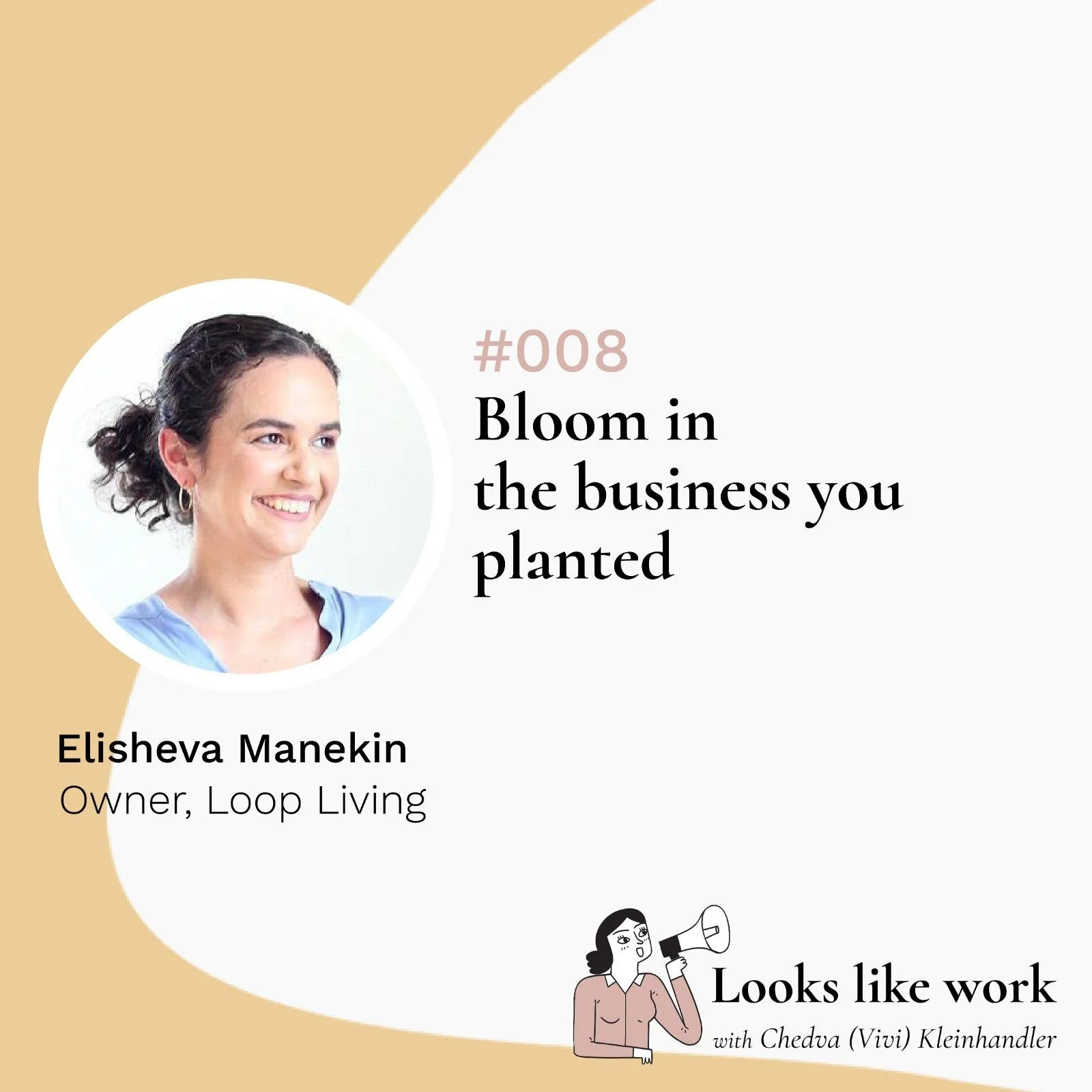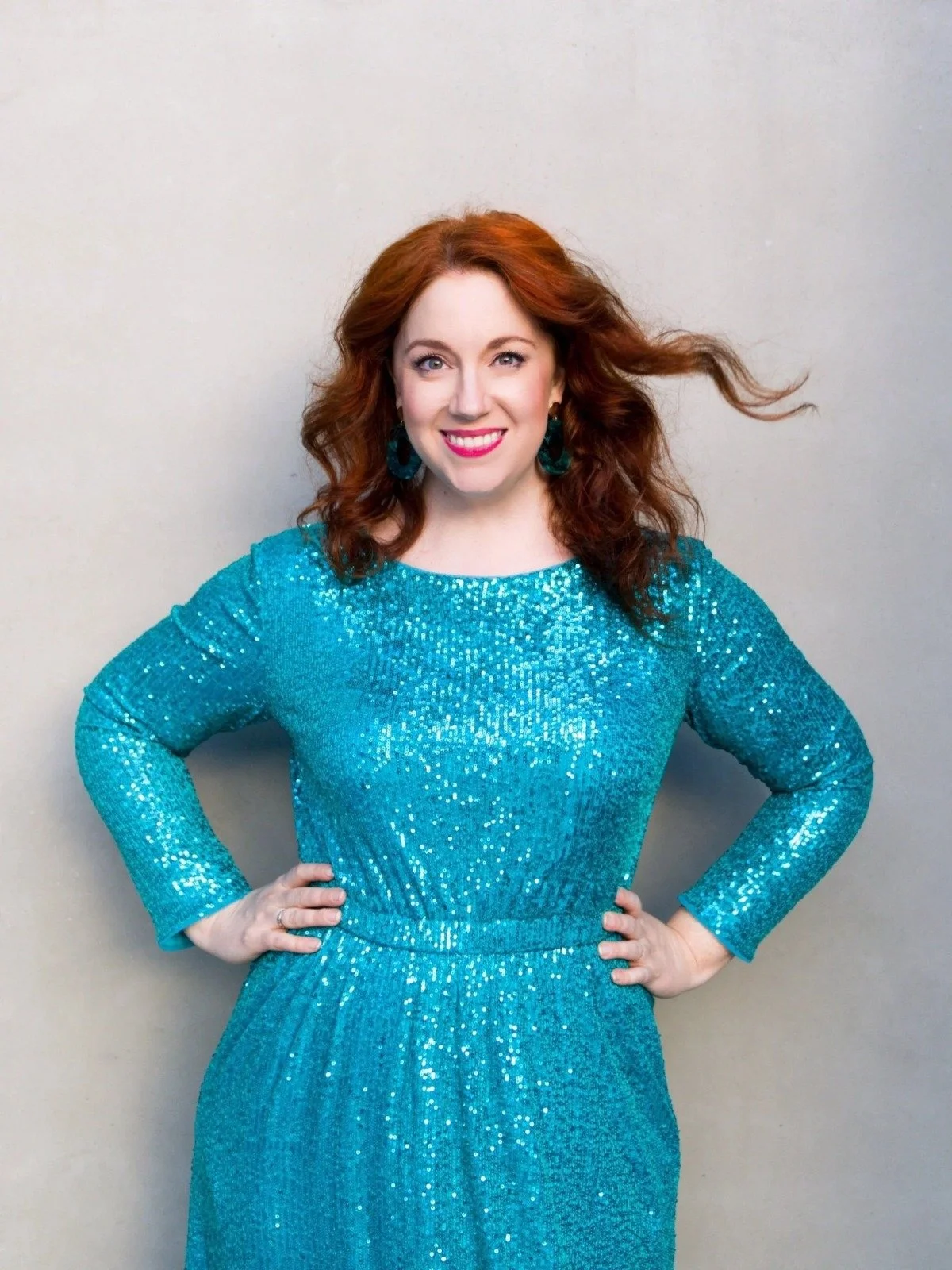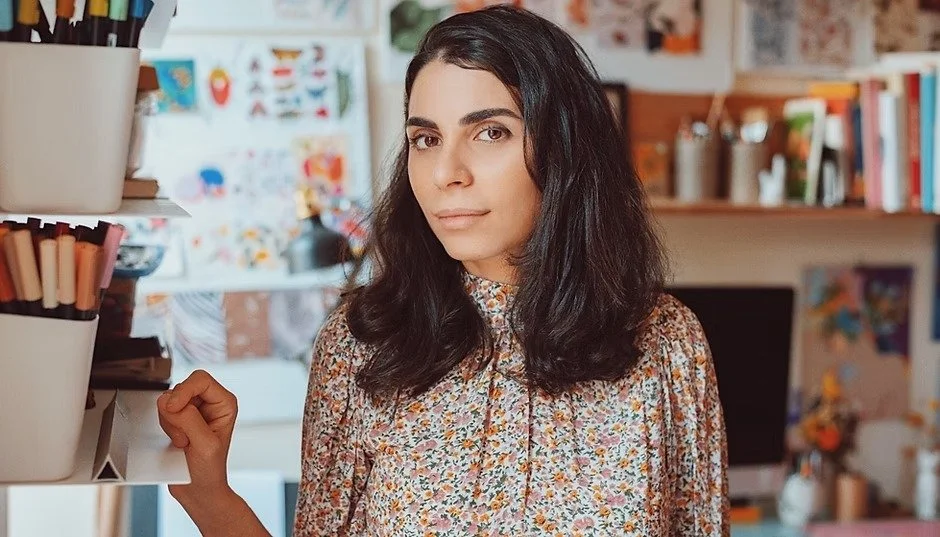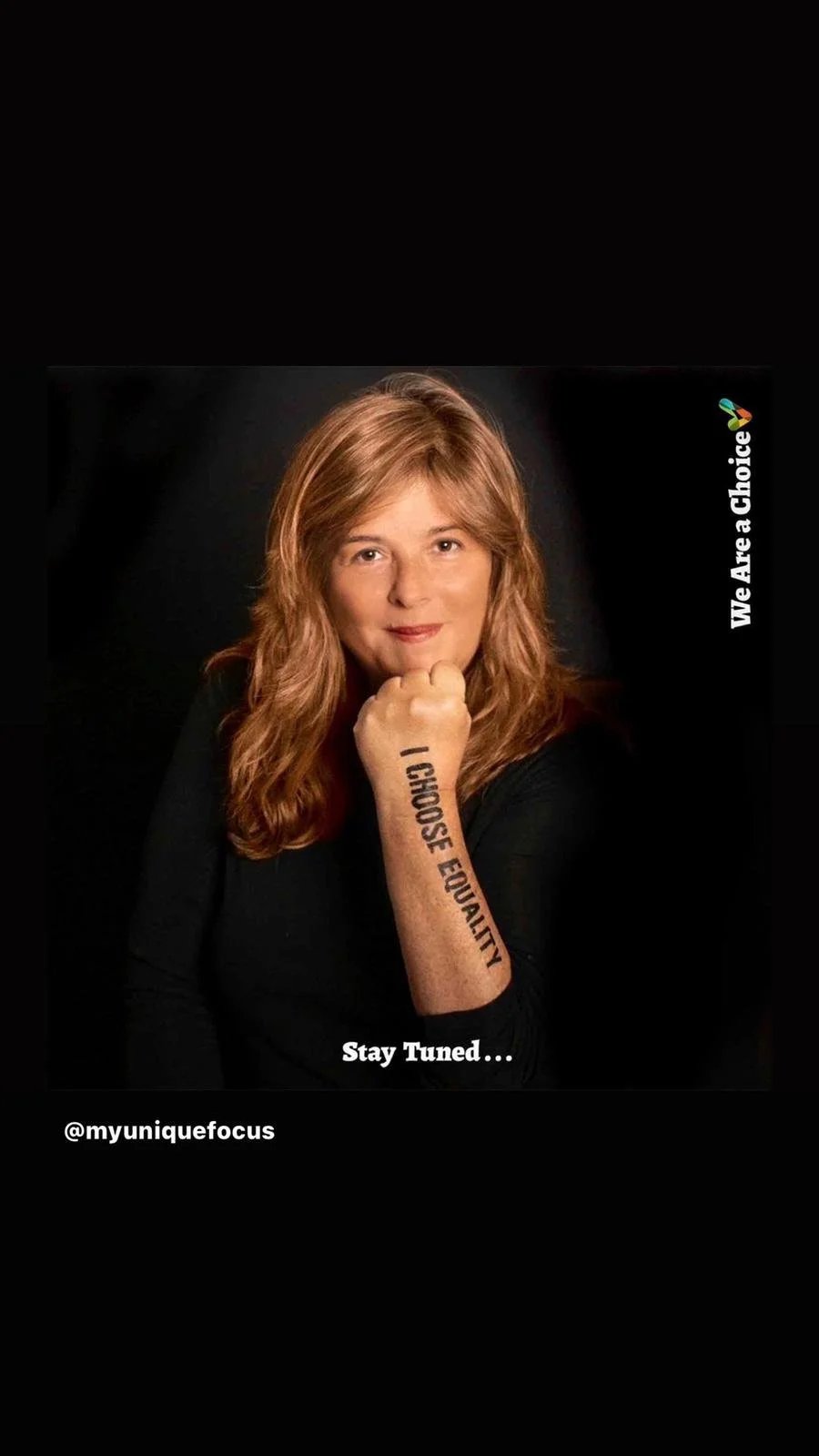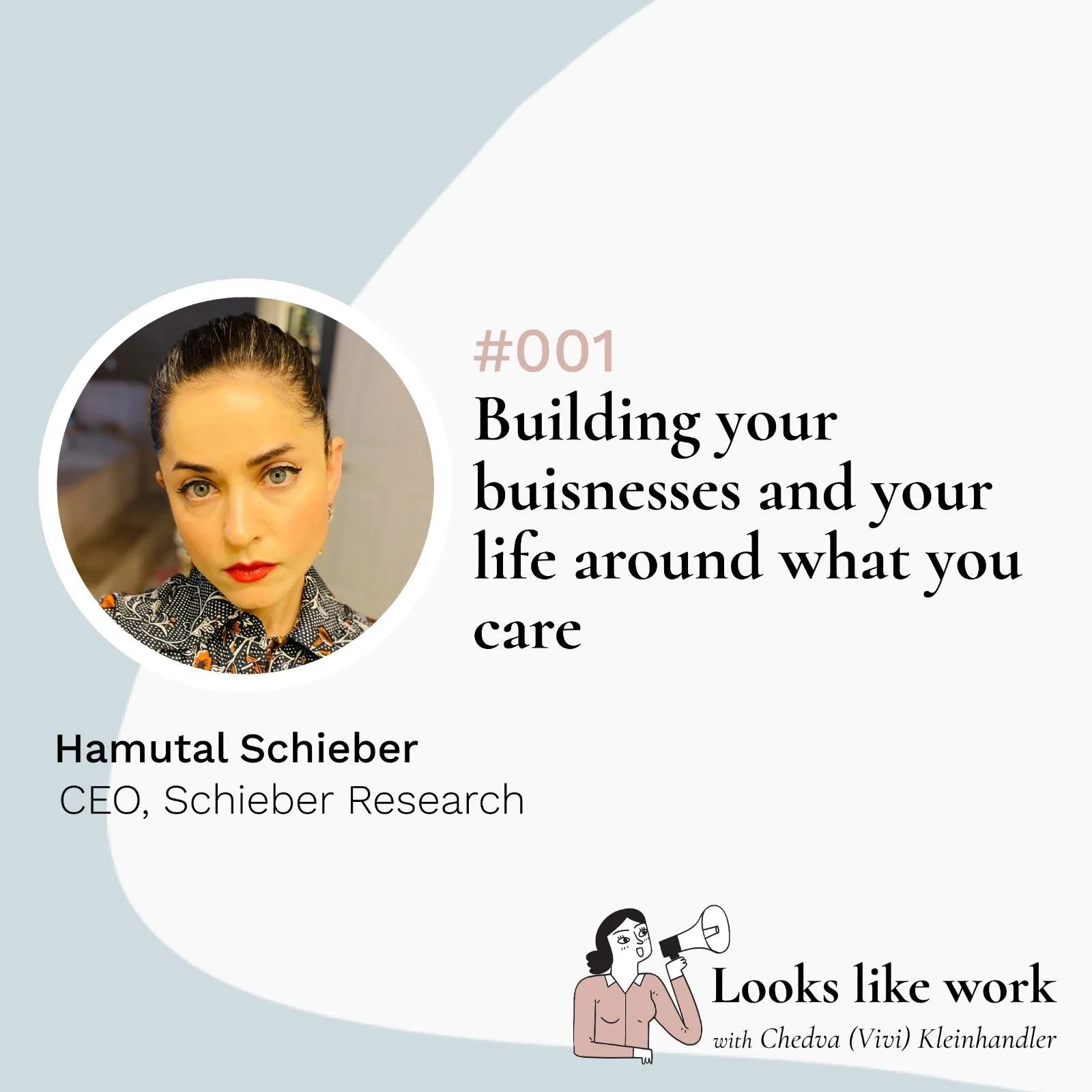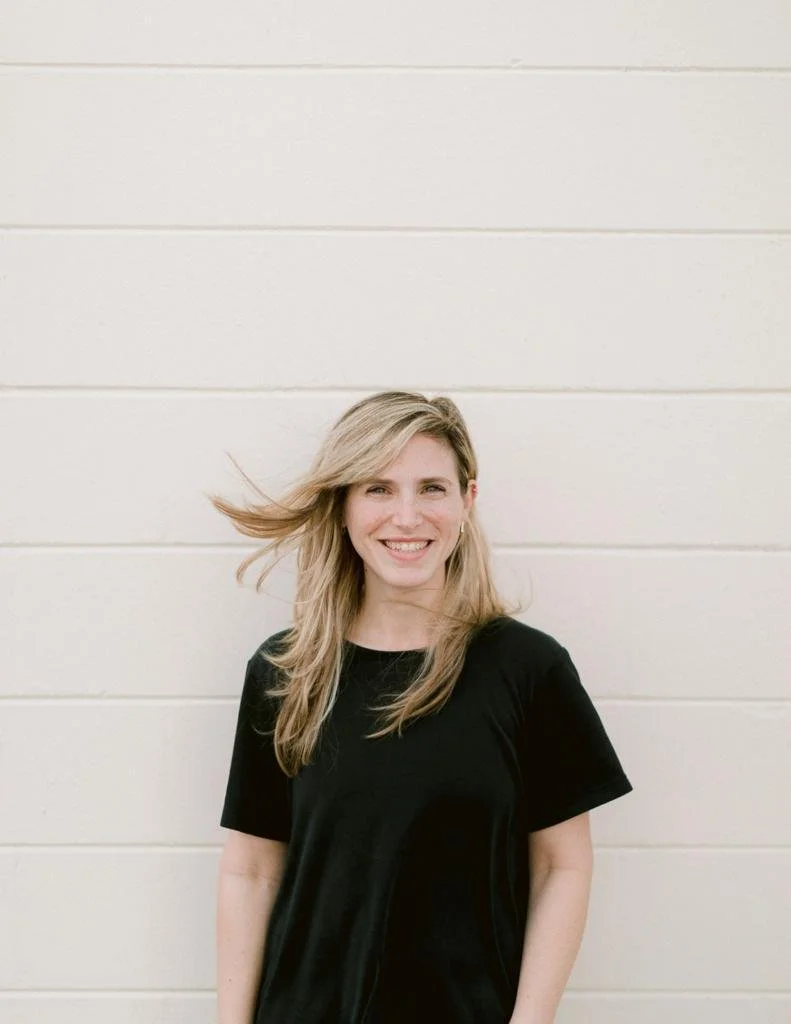Lab Notes
Questions, thoughts and news from the Consider galaxy
WELCOME TO THE BLOGCategory
From Plant Hooks to Plant Empire - Looks Like Work, Season 1, Ep 8
If you’ve ever tiptoed around calling yourself a founder because your business “just kind of happened,” this episode is for you.
Elisheva Manekin, the industrial designer turned founder of Loop Living, didn’t set out to build a plantware empire. She just wanted to make better plant hooks. But over the past 11 years, that blurry idea grew into a thriving, sustainable business—and in this conversation, she takes us behind the serene Instagram feed to share what it really took to get there.
We talk about letting go of bestsellers that didn’t feel aligned (yes, even when they were profitable), how niching down unlocked her brand identity, and what it’s like to finally say, “I have a company”—with pride, not a question mark.
And if you’ve been dancing with burnout while trying to do All The Things™, Elisheva’s take on control, perfectionism, and letting Shabbat be a built-in digital detox might just shift something in you.
Poems, Boundaries, and Being Seen at Work - Looks Like Work, Season 1, Ep 6
Burnout is not a badge of honor — but it took Gili Yuvall hitting a wall at 27 to really believe that.
Gili started her career in the always-on world of digital media, chasing deadlines across time zones until her body and mind told her it was unsustainable. What followed was a pivot, not just in job title but in rhythm: from journalism’s relentless sprint to the more deliberate pace of museums and fundraising. She moved to London for a master’s in curation, started over professionally, and eventually became Head of Development at the British Friends of the Art Museums of Israel.
Somewhere along the way, she also became a poet — capturing the absurd, poignant, and quietly revealing moments of working life. Her Hebrew poetry collection, This Time With Attachment, is filled with sharp, wry observations: the passive-aggressive email, the unmuted Zoom slip, the lunchbox that accidentally tells your colleagues everything about you. One short poem about office life went viral overnight, proof that we’re all living in some version of the same workplace sitcom.
Stepping Into Your True Voice and Caring About What YOU Think of Yourself - Looks Like Work, Season 1, Ep 4
Some careers are about chasing the dream. Others are about rewriting it entirely.
Casey Erin Clark had the kind of résumé most performers dream of: the national tour of Les Misérables, singing at the Oscars alongside Hugh Jackman, years of stage work. But somewhere along the way, she realized that the work she was doing — and the coaching she saw around her — was reinforcing a dangerous norm: teaching people to sound like “idealized middle-aged white men” in order to be taken seriously.
That didn’t sit right. Because what’s the point of being heard if you have to erase yourself in the process?
So Casey, along with co-founder Julie Fogg, built Vital Voice Training — a company dedicated to helping people access more of their voices, not less. Together, they’ve created a space where code-switching is acknowledged for what it is (both a survival strategy and a drain on energy), where psychological safety is non-negotiable, and where authority can sound like… well, you.
Designing a Creative Career that Suits You - Looks Like Work, Season 1, Ep 5
Some careers are a straight line. Lital Gold’s is more like a winding ribbon — patterned, textured, and moving with its own flow.
She grew up next to her father’s graphic design studio in Israel, where the smell of ink and the hum of creative work were part of daily life. What began as a plan for a three-month internship in the U.S. turned into nine years of designing for some of the most recognizable fashion brands in the world — Free People, Anthropologie, Urban Outfitters — and eventually Kate Spade. The day she started her new role, she had no idea that lockdown was just three weeks away.
Textile design is intimate work. It’s not just about creating something beautiful — it’s about designing pieces that literally wrap around people’s lives. Bedding that touches their skin. Patterns that hang on their walls. Prints that become part of their most personal spaces. And yet, while Lital’s designs were moving into homes around the world, her own heart was split between two places — her life in the U.S. and her longing for Israel.
There's No Playbook for Leadership - Looks Like Work, Season 1, Ep 3
Some careers look like a carefully plotted chess game. Yali Harari’s looks more like jazz.
She didn’t follow a roadmap from math student to serial entrepreneur, public company executive, and impact investor. She followed her gut — choosing people and visions over titles, and saying yes to what felt alive. That unplanned path has given her not just an impressive résumé, but a leadership style that’s deeply her own.
In this conversation, Yali dismantles the myth that leadership comes from a book, a framework, or a perfect LinkedIn post. For her, leadership is about listening so closely you hear what’s being said even when no words are spoken. It’s about showing vulnerability in rooms that reward bravado. And it’s about building partnerships that feel like spine support — the kind that holds you up when you can’t do it alone.
Building Your Business & Your Life Around the Things You Care About - Looks Like Work, Season 1, Ep 1
Some people keep work and life in separate boxes. Hamutal Schieber burned the boxes and used the ashes as compost.
In our inaugural episode, Hamutal—CEO and founder of Schieber Research—invites us into a life that refuses to be compartmentalized. She’s a lawyer-turned-market researcher who didn’t “find her calling” through a grand plan, but through a friend’s project that sparked curiosity and never stopped. Now she helps global companies spot what’s next by decoding competitors, startups, consumers, and macro trends.
She predicted stress-free living before it was a marketing slogan, saw the gut-health boom coming, and understands why oat milk isn’t about vegans—it’s about digestion, status, and the quiet thrill of having your thing.
But this conversation isn’t about trendspotting. It’s about integration. For Hamutal, work, fitness, family, and cooking are anchors, not competing priorities. There’s no “work-life balance” to maintain because there’s no separation to begin with. And yet, she’s brutally clear about the millennial trap: loving your work so much you bury yourself in it.
Rewriting the Alphabet and Your Career - Looks Like Work, Season 1, Ep 2
Some projects start with a brainstorm. Others with a whiteboard, a coffee, maybe a Miro board if you’re feeling fancy.
And then there are the ones that start with a street sign you can’t fully read.
For Liron Lavi Turkenich, a typeface designer and design entrepreneur, a walk through Haifa set off an eight-year odyssey. She saw a sign with Hebrew and Arabic side by side, realized she was subconsciously ignoring a third of it, and thought: What if I could make both readable at once?
Everyone said it couldn’t be done. Academia shrugged. But her engineer family just said: “It’s solvable.”
The result? Aravrit — a hybrid script that melds Hebrew and Arabic into a single, readable writing system. It’s now in museums from London to Barcelona and in the minds of programmers, designers, and dreamers who thought they were “just” their job titles… until they heard Liron speak.
But this conversation isn’t just about type design. It’s about being multi-passionate without losing your mind. About working on more than one project at a time without burning out. About how sending that one cold email or replying to that one tweet can change your trajectory.
Curiosity → Introspection → Transformation Curiosity → Introspection → Transformation
Curiosity → Introspection → Transformation Curiosity → Introspection → Transformation
Curiosity → Introspection → Transformation Curiosity → Introspection → Transformation
Curiosity → Introspection → Transformation Curiosity → Introspection → Transformation


